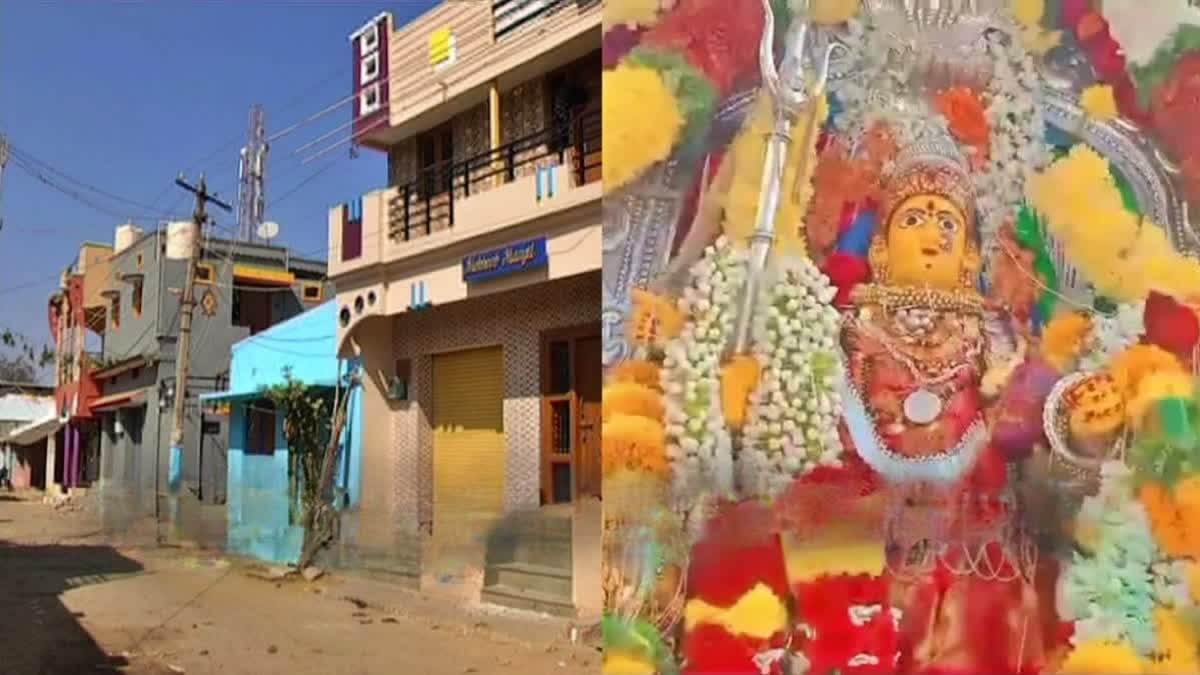Bellary (Karnataka): Steeped in traditions, most Indian festivals and fairs are linked to age-old belief systems and faith on the Supreme power, to each his or her own. The Guleda Lakkamma Devi Jatra and the Grama Devi Jatra Mahotsav held in the villages of Karnataka, are just two more, albeit with the exception, that both unite communities to enjoy and invoke the blessings of the deity.
Believe it or not, as a ritual, residents of Chornur in Bellary district and Hotanahalli in Shiggaon Taluk in Haveri District of Karnataka celebrate this unique festival by deserting their homes.
Cutting across religious communities, all people in Chornur move to the outskirts to spend the day and night so that the presiding deity Lakkamma Devi could reach their homes and grace each of it, as a sign of faith and reverence.
It is not only the residents, even the domestic animals and pets shift three 3 km away to the fairgrounds on the village outskirts, leaving behind an empty settlement. Homes are locked, schools and offices are closed as the natives spend the day engaged in prayers, communal cooking, and feasting.
The festival begins with a grand procession, during which the idol of Lakkamma Devi, revered as the presiding village deity, is ceremoniously brought to a designated temple on the outskirts. Devotees prepare a sumptuous meal, including traditional millet rotis, chutney powders, and a variety of vegetable curries, and share it as a symbol of togetherness and harmony.
The tradition dates back to centuries when Goddess Lakkamma is symbolically sent to her husband’s home in Choranur village and welcomed back to Guderahalli, her maternal home. This practice emphasises community bonding. Strangely no untoward incidents like thefts, or mishaps have ever been reported during the festival.
